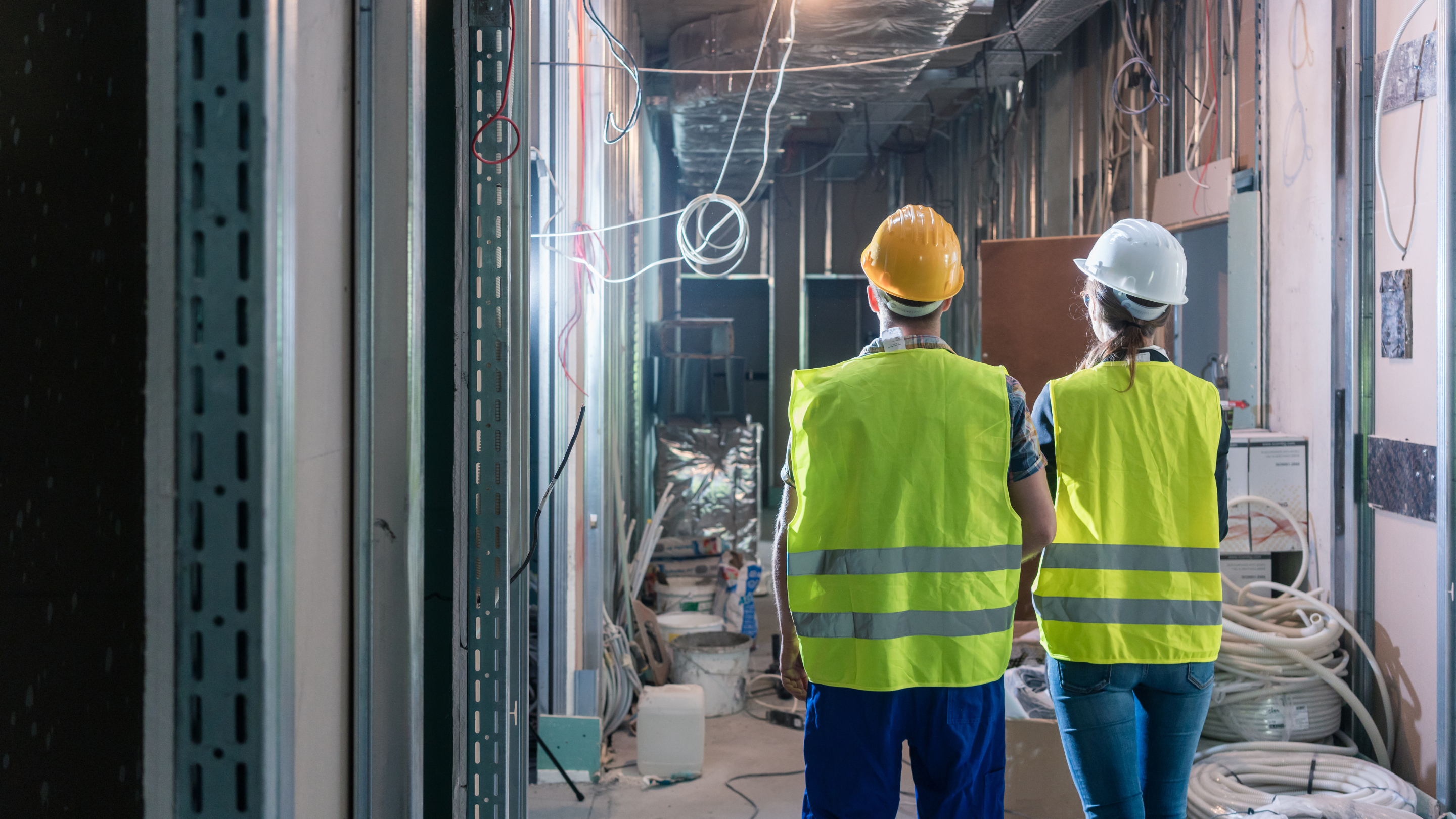Renovating or making significant improvements to your commercial property can be an exciting time for your business, but it also introduces unique risks. Standard commercial property insurance policies often don’t provide adequate coverage during extensive works, leaving your property and your investment exposed.
So, how do you ensure your property is properly insured throughout the construction process? In this blog, we’ll explore the key considerations and insurance options for protecting your commercial property during renovations or extensive works.
Why Standard Policies May Not Be Enough
When a commercial property is undergoing extensive works, such as structural renovations, refurbishments, or additions, the risk profile of the property changes. Increased hazards such as fire, theft, accidental damage and even collapse come into play. Standard property insurance policies typically exclude coverage for these risks, leaving property owners without sufficient protection.
Additionally, the involvement of contractors, subcontractors and construction teams introduces further complexities, such as:
- Damage caused by contractors: If contractors accidentally cause damage, your existing policy may not cover it.
- Unoccupied periods: If your property is unoccupied during the works, this can void standard policies.
- Public liability risks: Renovations can increase liability risks to third parties, such as passers-by or neighboring properties.
Specialised Insurance for Properties Undergoing Works
To address these risks, specific insurance solutions are available for commercial properties undergoing extensive works. Here are the main options to consider:
1. Contractors All Risks (CAR) Insurance
A Contractors All Risks (CAR) policy is often the best choice for projects involving extensive works. This type of insurance provides comprehensive coverage for:
- Damage to the property being worked on.
- Materials and tools on-site.
- Public liability for third-party injuries or property damage.
- Potential legal disputes involving contractors.
This policy can be arranged by the property owner or contractor but must clearly list all insured parties.
2. Works or Renovation Insurance
A Works or Renovation Insurance policy is specifically designed to cover buildings during construction or refurbishment. It protects the existing structure as well as new works being completed. Coverage typically includes:
- Fire, flood, theft and vandalism.
- Damage caused by faulty workmanship or design (in some cases).
- Liability for damage to neighboring properties or third parties.
This is ideal for property owners who are responsible for insuring the entire project.
3. Joint Named Policies
For larger projects, a joint-named insurance policy may be required. This means the property owner and contractor are both insured under the same policy. A joint policy helps avoid disputes over who is responsible for claims, ensuring smoother resolution and comprehensive protection.
4. Existing Structure Coverage
If your renovations involve contractors working on an existing building, you may need to specifically insure the existing structure under the renovation policy. Standard contractor policies often only cover new works, leaving the existing property exposed unless additional coverage is arranged.
Key Considerations When Insuring Your Property During Works
When arranging insurance for a property undergoing extensive works, keep these important points in mind:
1. Understand the Scope of Works
Provide your broker or insurer with a detailed description of the planned works, including:
- The type of construction or renovation.
- The duration of the project.
- The value of the works.
This ensures your policy is tailored to your specific needs.
2. Involve Your Contractor
Confirm whether your contractor has adequate insurance coverage, such as public liability and contractors all risks insurance. However, it’s important to note that the property owner is typically responsible for insuring the existing structure.
3. Check Unoccupancy Clauses
If your property will be vacant during the works, inform your insurer. Unoccupied properties carry higher risks and may require a specialised policy or additional security measures.
4. Ensure Legal and Contractual Compliance
Many construction contracts, such as JCT contracts, specify which party is responsible for arranging insurance. Make sure your policy complies with these terms to avoid disputes.
5. Review Coverage Regularly
As the project progresses, update your insurer on any significant changes, such as an increase in the value of works or additional risks.
The Importance of Tailored Advice
Insuring a commercial property during extensive works is a complex process that requires a thorough understanding of your project and its risks. At Sustain Insurance Brokers, we specialise in providing tailored insurance solutions to meet the unique needs of property owners and developers. Whether you’re refurbishing an office, adding extensions to a retail space, or undertaking structural renovations, we can help you secure the right coverage.
Protect Your Property During Renovations
Don’t let gaps in your insurance put your property or project at risk. Contact us today to discuss your renovation plans and ensure your commercial property is fully protected throughout the works.















